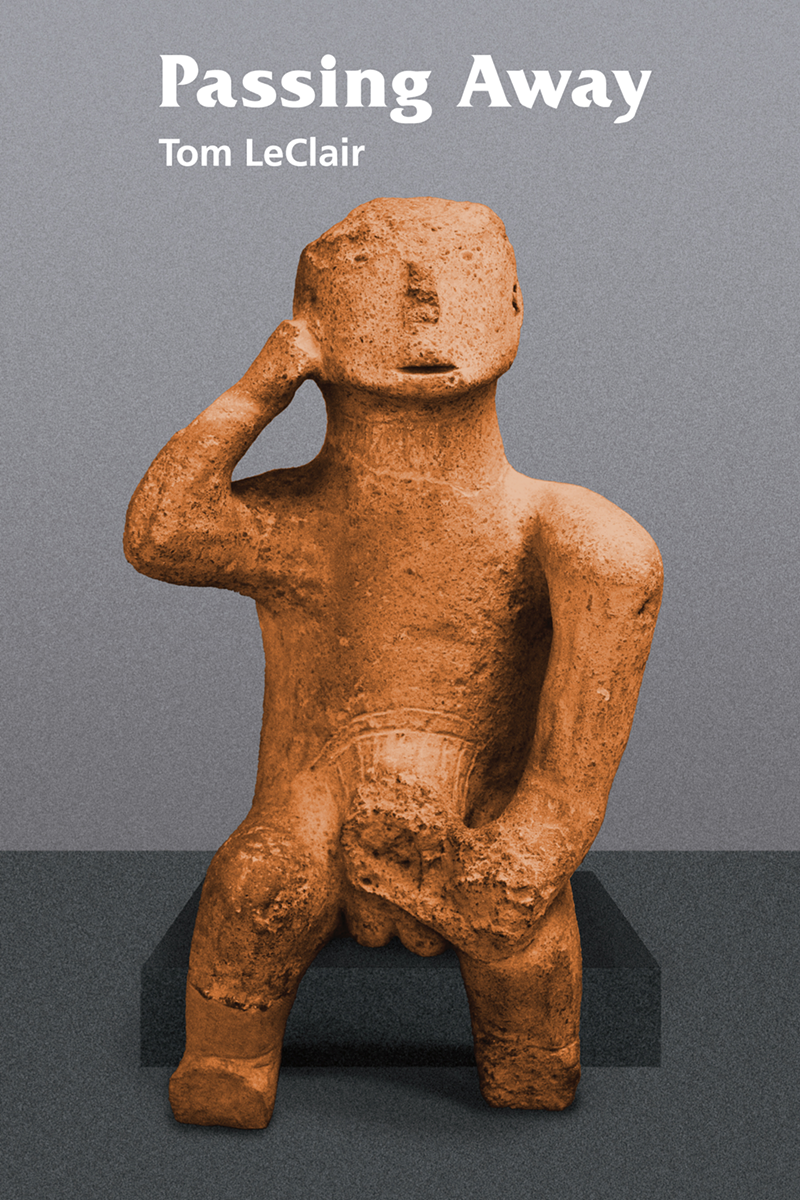Tom LeClair has dedicated his life to the written word. And now, 48 years after he first started teaching literature at the University of Cincinnati and several years after he relocated to Brooklyn, N.Y., LeClair says his latest novel, Passing Away — published by Cincinnati-based Waxing Press in early October — will be his last.
The fourth in a series following Passing Off, Passing On and Passing Through, the new book’s meta narrative again centers Cincinnati-based Michael Keever’s writings. Keever is a truth-bending memoirist who relays stories from the perspective of three seemingly unconnected figures: his long-estranged older brother Patrick, who lives in the family’s rural Vermont home; former U.S. President Calvin Coolidge; and Frederic Tudor, the “Ice King” of 19th-century America. But the three are tied together through one overriding theme: all are near death.
Passing Away is also concerned with correcting the past. Each of the three stories tries to find the “truth,” a goal Keever and his subjects often stretch to fit their preferred narrative — and a subject that, as LeClair is well aware, is under considerable assault in our current social and political age. LeClair’s writing impressively renders the three different voices — from the mid-19th-century vernacular of Tudor to the 1933 post-presidency musings of Coolidge to the contemporary setting of Michael and Patrick Keever; it’s no doubt the result of deep research and the culmination of a life devoted to dissecting the writing of others.
LeClair came of age in Vermont in the 1950s, an era when newspapers and books were more at the forefront of our civic and personal lives. He studied literature voraciously and eventually graduated with a Ph.D from Duke University in North Carolina. A few years later, in 1970, he began teaching at UC, a run that lasted four decades and resulted in his designation as Professor Emeritus.
LeClair came to wider attention in literary circles via the 1988 publication of In the Loop: Don DeLillo and the Systems Novel, an incisive critical study of DeLillo, a novelist who not only fascinated LeClair but would also go on to become one of the most revered writers of the last half-century. Two more books of literary criticism followed, as did a raft of book reviews and essays for the likes of The New Republic, The New York Times Book Review, BookForum and The Washington Post.
But it wasn’t until Passing Off, released in 1996, that LeClair tackled fiction.
“I came to fiction-writing late,” LeClair says by phone from his Brooklyn home. “I was 52 years old when my first novel was published, and I’d never written any fiction before that. I just decided I was going to write this novel. I had never written short stories or anything.”
At the heart of LeClair’s Passing series is the aforementioned Keever, a former basketball player — a “passing” point guard — who, in this latest book, finds himself teaching creative nonfiction at a fictional placed called Queen City College and who is continuing his own series of memoirs via a novel also called Passing Away. The metaphysical layers are endless, an aspect of the series that continues to pique LeClair’s interest.
“There are a lot of reasons,” LeClair says when asked why he continues to return to Keever and the Passing universe he created more than two decades ago. “One of them is that (John) Updike wrote four books about his shooter, Rabbit, and I kind of wanted to do a fourth one about my passer, Michael Keever. I find it comfortable to write in his voice. Whenever I think about a subject to write about I ask myself, ‘Is Keever right for this job?’ And I guess I also had never really written much about his background in Vermont, and so I thought this would be a chance to give background that wasn’t in the first three.”
Of course, it’s likely not a coincidence that LeClair also grew up in Vermont.
“I like the connections among the books and how they build on one another,” LeClair says. “I was a big proponent when I was teaching and writing reviews of long books, and my students used to make fun of me because I had not written a long book. I think of this series as a fairly long book. I guess it would be something like 700 pages if you put all of them together.”
The post-modern approach to narrative has long been of particular interest to LeClair.
“Don DeLillo condescended to what he called ‘around the house and in the garden fiction.’ I don’t write that kind of fiction,” he says. “And I don’t know that that’s necessarily an influence of my criticism.” The best of which he says were about larger novels, like Thomas Pynchon’s Gravity’s Rainbow, William Gaddis’ J R, and Robert Coover’s The Public Burning — all of which he called huge, information-rich reads.
“Those are the people that I most admired, but I was no genius,” he says. “I wasn’t going to write one of those, but I think the influence is there that I wanted to do something more than just tell stories about domestic lives.”
And yet he does delve quite deeply into the personal matters of Passing Away’s three figures, illumining aspects of their lives that would have otherwise gone unnoticed.
Speaking of unnoticed, LeClair is well aware that his particular style of novel has a limited audience, which brings us back to the fact that he says this will be his final fictional outing.
“Right now, I mostly write protest signs and protest at Trump Tower, as I will today in a couple of hours and stand there with a couple of friends,” he says when asked if Passing Away will indeed be his final novel. “Talk about futility. You think writing fiction is futile? Standing there in front of Trump Tower with a protest sign — there’s futility.”
The author also released a collection of essays on Trump last year and went on to say that the virality of protest signs receives a circulation that far outweighs those who read his books. “Which is kind of ironic, right?”
Tom LeClair’s Passing Away, published by the local Waxing Press, can be found at waxingpress.com.



